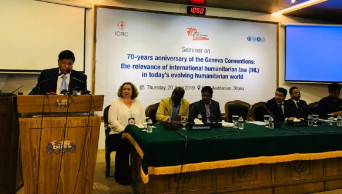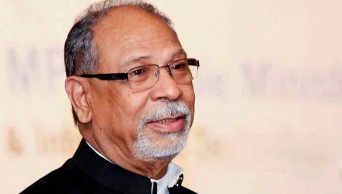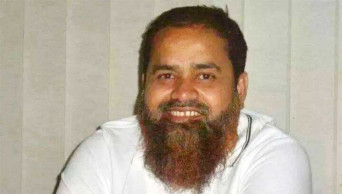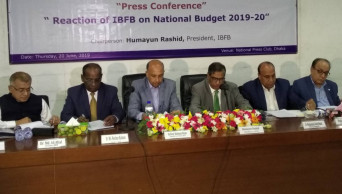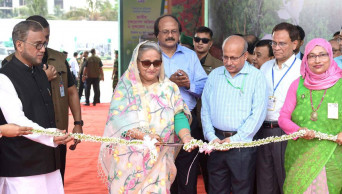Bangladesh
Int'l community must hold Myanmar accountable for gross HR violation: FM
Dhaka, June 20 (UNB) -Foreign Minister Dr AK Abdul Momen on Thursday said the international community must take strong resolve to ensure that Myanmar is held accountable for this gross violation of human rights.
World Music Day Friday
Dhaka, June 20 (UNB)- The country will observe the World Music Day along with 120 countries around the globe on Friday.
Latif Siddiqui lands in jail in graft case
Bogura, Jun 20 (UNB) – A court here on Thursday sent former Textiles and Jute Minister Abdul Latif Siddiqui to jail after rejecting his bail plea in a corruption case filed by the Anti-Corruption Commission (ACC).
EU commits €18mn to strengthen resilience for Rohingya, host communities
Dhaka, June 20 (UNB) - The European Union (EU) has announced €18 million in funding to help improve resilience among Rohingya refugees and Bangladeshi host communities in Cox’s Bazar.
SC stays HC order granting bail to ex-MP Rana
Dhaka, June 20 (UNB) –The Appellate Division on Thursday stayed till July 1 the permanent bail granted by the High Court to former Awami League MP from Tangail-3 (Ghatail) Amanur Rahman Khan Rana in a case filed over killing of two Jubo League leaders.
IBFB urges government to reduce corporate tax rate
Dhaka, June 20 (UNB) - The International Business Forum of Bangladesh (IBFB) on Thursday urged the government to reduce corporate tax rate for increasing investment capacity in the country.
Fire at Paribagh building brought under control
Dhaka, June 20 (UNB)-A fire that broke out on the 10th floor of a high-rise building at Paribagh in the city on Thursday afternoon has been brought under control.
9 get death for murdering Chapainawabganj Jubo League leader
Chapainawabganj, June 20 (UNB)— Nine people were sentenced to death on Thursday for murdering Jubo League leader Monirul Islam, who was also the treasurer of Sonamasjid Land Port C&F Agents Association.
Plant saplings at houses, workplaces: PM
Dhaka, Jun 20 (UNB) – Prime Minister Sheikh Hasina on Thursday urged all to plant and nurture saplings in their respective workplaces and houses with a view to protecting the environment.
2 held with gold chains in Chuadanga
Dhaka, June 20 (UNB) – Members of Border Guard Bangladesh (BGB) on Thursday arrested two persons with four gold chains, weighing 1.22 kg, from the bordering area in Damurhuda upazila.
